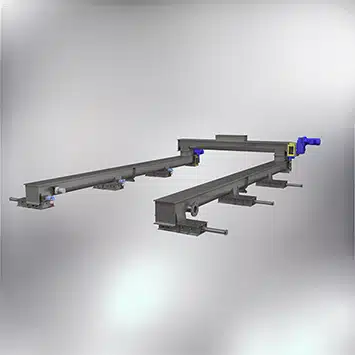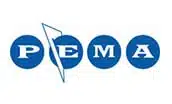Continuous Bucket Elevator for Wood Fiber Recycling Plant
General Description
Sustainable products provide environmental, social, and economic benefits while protecting public health and environment over their whole life cycle, from the extraction of raw materials until final disposal. As a rapidly growing industry sector in the United States, every pound of material that can be diverted from a landfill and reused helps to sustain our environment.
One area of focus is recycling wood and paper products to create wood fiber materials used in soil erosion management. The finished product typically takes the form of a blanket that protects topsoil while allowing water and nutrients to reach plant life.
Prior to becoming a blanket, the wood fibers must be conveyed between various processes within the plant. At this point, the bulk material exhibits an ultra-low density and is stringy, tending to form clumps within itself. As a result, conveying equipment selection is critical to contain the product and prevent costly downtime resulting from plugged machinery. Bucket elevators are an excellent way to elevate bulk materials between floors within a plant, but care must be taken with the design. As the leader in the bulk material handling industry, KWS provided a cost-effective, long-term solution.
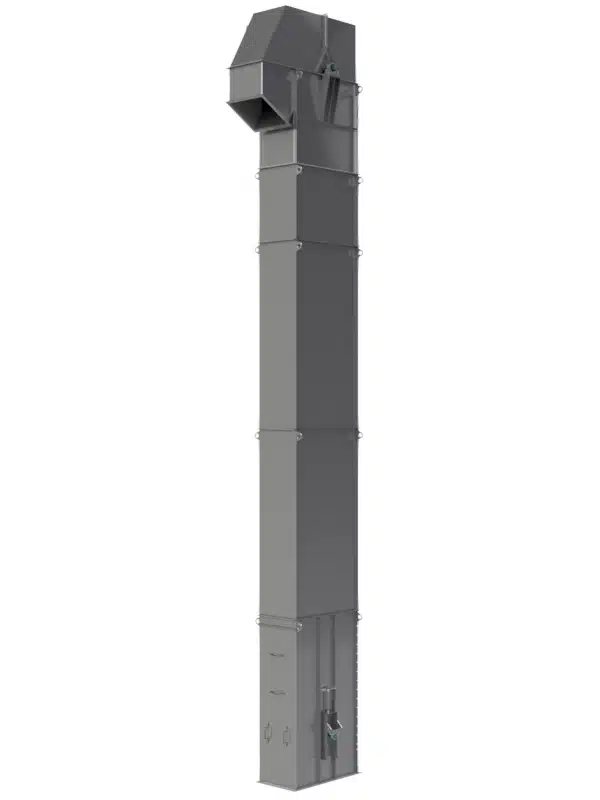
Continuous Elevator Easily Conveys Light Density, Stringy Wood Fiber Vertically
Design Parameters
- Product Type: Wood Fiber
- Material Density: 1.5 Lbs. per Cubic Foot
- Capacity: 8,000 Lbs. per Hour
- Duty: 24 Hours per Day, 7 Days per Week
KWS Advantages
Though centrifugal bucket elevators are the most common design for elevating bulk materials, attempting to discharge a low-density bulk material such as wood fiber would lead to much of it free floating within the elevator housing. A continuous bucket elevator allows the material to discharge by gravity and slide out of the bucket, using the back of the preceding bucket as a ramp. Such a controlled discharge is preferred to maximize transfer efficiency. In addition, a belt-type elevator was used rather than a chain to avoid open areas where wood fibers could potentially snag and form clumps.
KWS Special Features
KWS bucket elevators are designed with split gland seals as a standard on head and boot shafts. Doing so provides for a superior seal, keeping material contained within the bucket elevator and away from bearings, preventing unnecessary material loss. Screw-type take ups were mounted on the boot shaft, allowing the customer to adjust the tail pulley as needed to ensure proper belt tension and alignment. Bolted inspection ports allow for maintenance and cleanout of the elevator housing as needed without having to disassemble the entire unit.
Testimonial
"The KWS bucket elevator is well made, and the lead time was far superior to any of the other manufacturers we considered."
Gary B. – VP of Manufacturing
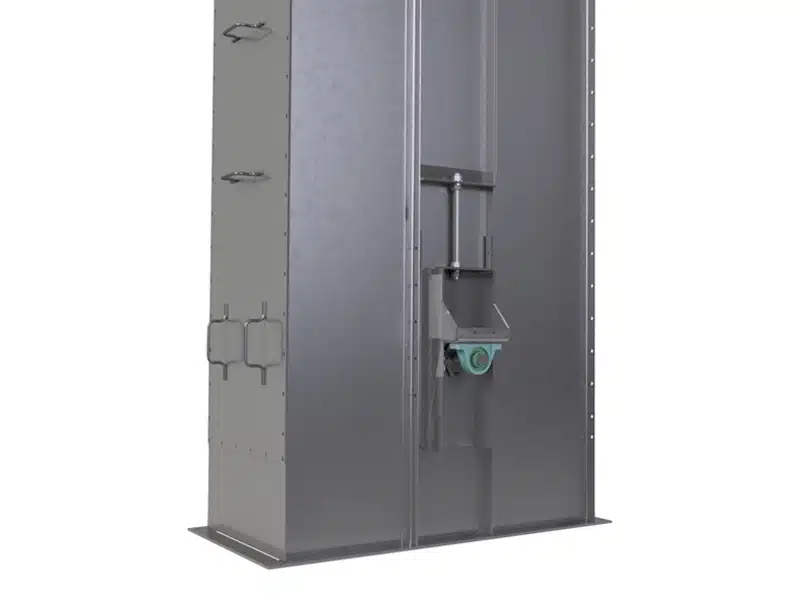
Screw Take Up Provides Belt Tension and Alignment
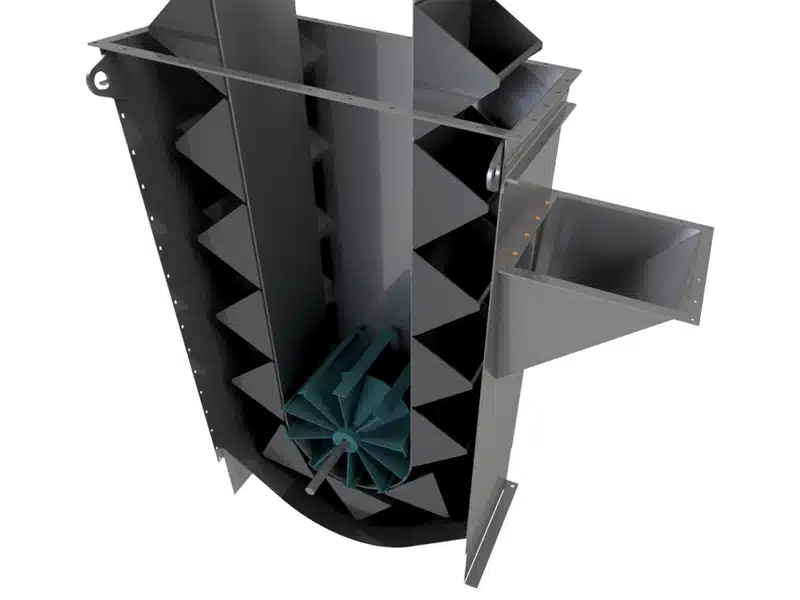
Belt-Type Elevator Eliminates Potential Material Plugging Issues
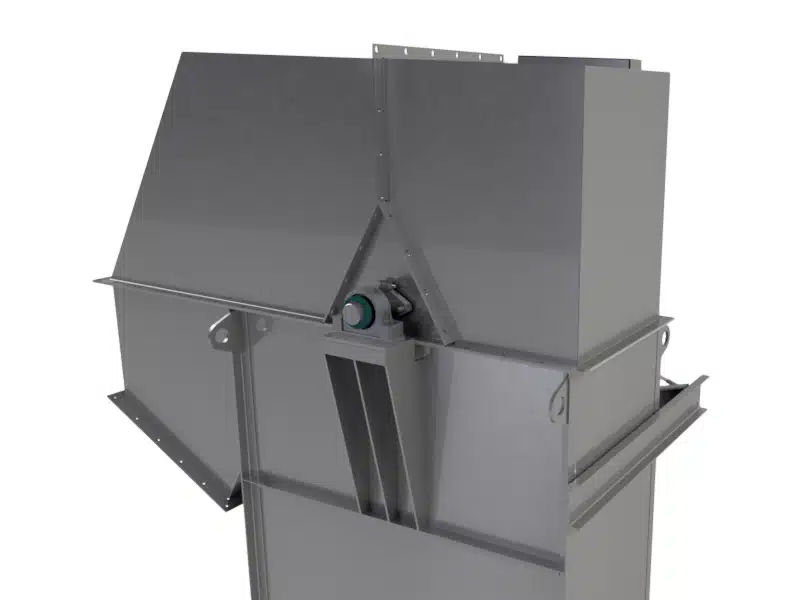
Split Gland Seals on Head and Boot Sections Ensure Material is Completely Contained Within Housing
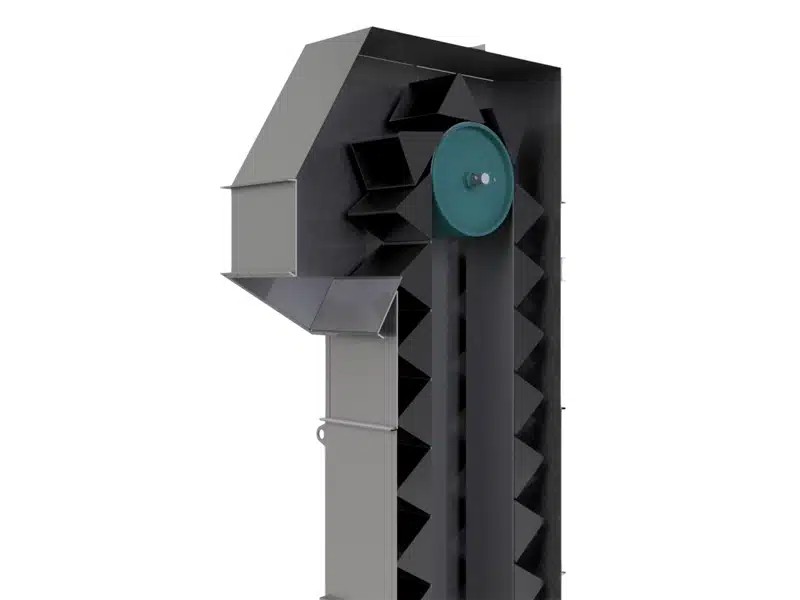
Material Discharges by Gravity Using Back of Preceding Bucket as Ramp

